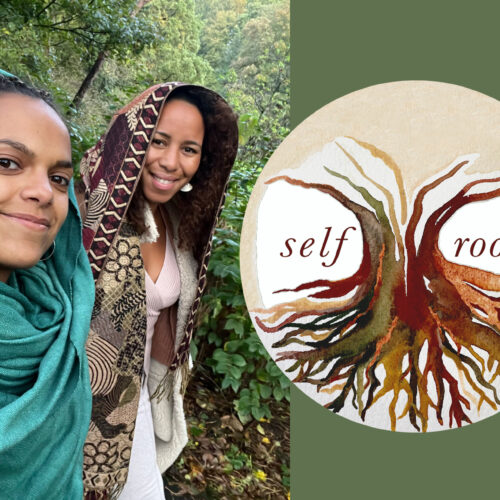In conversation with the Institute 8th of March
When I stepped into my interview with Tina Tomšič from the Institute 8th of March (I8M), I knew from the get go that it would be hard to fit all the blood, sweat, tears and hard-earned victories this group is championing in Slovenia. I was familiar with the work of these badass feminists, but I was caught off guard with how much I would be reckoning with to pay justice in this piece to their trailblazing work.
The Institute 8th of March emerged in 2016 from a campaign for LGBT marriage equality law in Slovenia. The law was passed in 2015, but its opponents demanded a referendum in which the law was rejected, and this defeat led to the creation of the 8th of March Institute with Nika Kovač as its director. Tina got involved while she was still in highschool. At the time, Tina had been a part of other activist groups, but for her, the I8M was a very different schooling. Instead of pouring energy into the typical leftist discussions that lose strategic sight while discussing idealism and planning “the next big revolution”, the I8M found its roots in the relational aspects of comradeship. They popularised the importance of lived experience and drawing from that tangibility of experience, what it is like to not have rights – in terms of sexual and reproductive health, same sex marriage, women’s rights or equality. “It all needed further public scrutiny, stories needed to be told and heard before our progressive agendas would be instrumentalised by neoconservative forces”, says Tina.
Their message quickly reverberated among folks who were able to unite in commonly lived and observed realities – a solidarity chain reaction. In the peak of the international #Metoo movement, the I8M team launched in 2018 the national campaign #jaztudi (me too, in slovenian), and created a website where victims of violence and sexual harassment could upload and share their stories anonymously, ending up with more than 300 entries. The campaign raised massive attention in national media, and brought to the fore the sexual and gender violence that lives in the confines of personal realms. As Tina ably puts it, “storytelling was and still strongly is a powerful force for the institute’s campaigning”, those stories being the fuel for these bold feminists to campaign and advocate about what needs advancing systemically.
After showing off strong mobilisation moves with the #jaztudi campaign, the team now had ample material to pull analysis from, and to push the envelope on women’s rights in the country. It was #jaztudi that led this crew, with the help of dozens of volunteers spread across the country, to hold a nation-wide campaign that pushed for a law reform to change the legal definition on rape and sexual violence in accordance with the “yes means yes” consent model, affecting the way that thousands of cases would be judged. And after 7,000 certified signatures were collected in 2 weeks during covid, their law amendment was passed later in 2021.
While building and mobilising community from Ljubljana, where they started, to many other towns and villages, the I8M was forging new fertile ground to uproot injustice and change things based on communities’ concrete struggles. This is why they adopted – while they were not so tied to funding yet – an emergent strategy to shape that change, in order to react to their community needs, versus having 5 year strategy plans and theory of changes that, as ambitious as they might sound, cannot adequately respond to how shifting reality actually is.
With the emergent strategy in mind, and wittingly drawing from their capacity to mobilise, they were asked to join environmental organisations who called out for a national referendum to protect public waters from private interests, a plan that was underway just as Janez Janša’s cabinet entered government. Now, to organise a national referendum in Slovenia one needs 40,000 certified signatures at the official office. Even the organisers were surprised with the results.. They managed to collect more than 60,000 signatures, calling a referendum to undo the Waters Act, which had an outstanding turnout: the Waters Act was rejected, with 86% of people voting against it.
With two big national campaigns and a vibrant community across the country in the pocket, it was time to focus on movement care, for these are times where urgency is always pushing the clock. After a 3-month very much needed pause, the Institute’s team launched the website “I did not report” to collect testimonies of violence in intimate partnership – often impossible to report -, following a viral trend that started in Serbia. At the same time, they worked on abortion rights, an issue that has always been close to the movement.
“When we speak about sexual and reproductive rights, we don’t just speak about abortion. Being pro choice means to make these themes accessible across the country, de-stigmatise abortion, first and foremost, but it also means making information accessible for those who want to have children to be able to do so.. And if they cannot [have children], we should ask ourselves why.”
This vision looks more widely at the intersecting spaces where oppression strikes, in this case touching on gender and economic inequality. This is why the I8M, besides being the authors of the only pro choice website in Slovenia, have been campaigning for making elementary school free, offering free lunch to kids at school, and why they keep campaigning around childcare support for those who need it.
In a seemingly lukewarm world, corruption hides in plain view, and the work of activists can be easily twisted by corrupt systems that do not operate to promote plurality (i.e, expected when living in democracy), but to control who has the winning narrative, for political power is at stake. That is no different in Slovenia. But when it comes to countering normcore discourse in the public space, these activists are not afraid of ruffling their feathers, and they intend to keep it that way. When I asked Tina about the whys of not getting into party politics, it was clear that the fight for power and the distancing from their civic community was not an option for the I8M crew. The institutional space is built upon power hoarding, and in the activists’ view “we need a strong civil society for a healthy democracy”.
The I8M is an organisation that is moving mountains in Slovenia, flirting with the boundaries of what a civil society organisation can do to achieve change. That is evident in their many convocations of national referendums and law reforms, in the way they engage community through manifold on-the-ground campaigns and by being a lifeboat for many isolated, disempowered folks. Their story and ongoing trauma-informed collective-action work breaks past single-issue organising, and dinosaur establishment politics, and is a beacon for central and south European feminist movement-builders.




